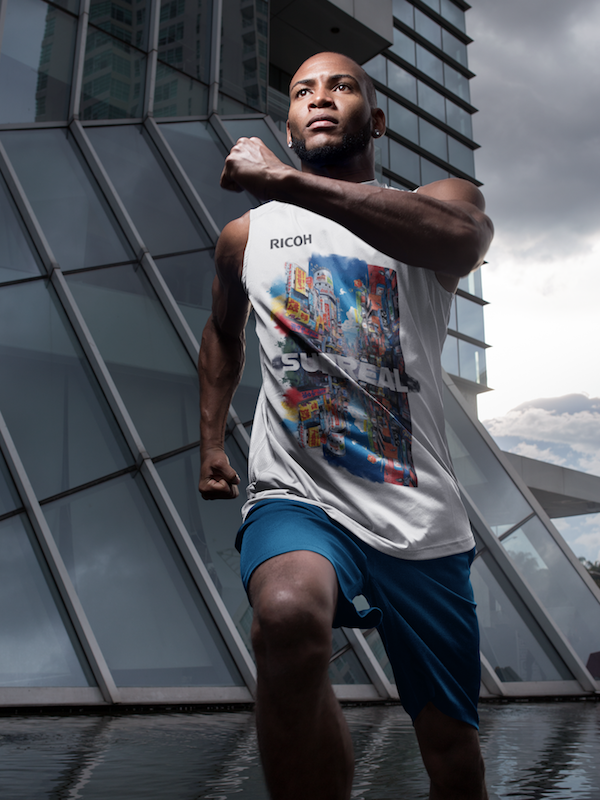By Axel Stuhlreiter, Head of Textile Solutions, Graphic Communications Group, Ricoh Europe
Since Direct To Garment (DTG) printing’s inception 100% cotton has been the champion textile of choice.
The long term title holder has retained the crown thanks to its natural fibres, tight weave, and ability to absorb dye pigments. These performance attributes ensure outstanding, consistent, and reliable results.
However, cotton has a challenger.
Opening up a whole new world of potential, particularly for sportswear apparel, is polyester.
The versatile fabric is favoured for activewear because of its moisture wicking and breathability.
But, until now, polyester’s typically loose knit construction has hindered DTG printing adoption by posing some high quality and durability challenges when printed with this technology.
DTG inks adhere only to fibres, so any ink that is initially printed into the gaps between the fibres immediately washes away. The result is reduced vibrancy and a lower brightness factor when compared to a print on a cotton garment.
The latest evolution in DTG technology removes these obstacles.
It eliminates the inconsistent quality of manual pretreatment to affordably deliver industrial garment printing on polyester.
With the global sportswear apparel market forecast to increase from $213bn in revenue in 2023 to $294bn in 2030, the potential wins are attractive.
This is why Ricoh recently launched the RICOH Ri 4000. Its newly developed enhancer (pretreatment) liquid and ink supports clients’ business growth goals by printing on 100% polyester material and high polyester blends with ease.
This and other exciting solutions that create opportunities for apparel decorators, designers, and a wide range of businesses aiming to expand their product line will be showcased at FESPA.
www.ricoh-europe.com








